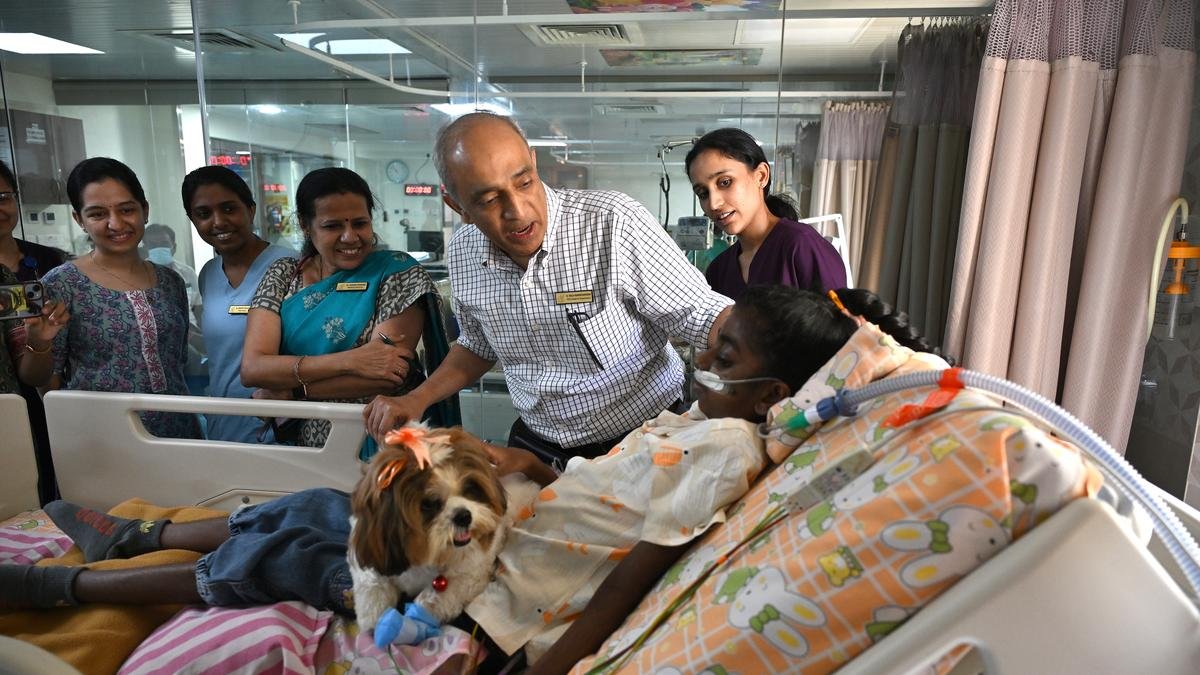Kanchi Kamakoti CHILDS Trust Hospital introduces pet therapy in paediatric ICU

CHENNAI: Dr. Bala Ramachandran of Kanchi Kamakoti Childs Trust Hospital introduces pet therapy in the hospital’s paediatric ICU Photo: SRINATH M/THE HINDU
| Photo Credit: SRINATH M
The Paediatric Intensive Care Unit (PICU) at Kanchi Kamakoti CHILDS Trust Hospital has introduced pet therapy as an additional supportive measure for critically ill children. The initiative, led by Bala Ramachandran, head of Intensive Care & Emergency Medicine, aims to help young patients cope with the psychological challenges of prolonged hospitalisation.
“Children in the ICU experience considerable stress and disorientation. They lose track of time, see only a few family members, and often develop delirium, a state of confusion and agitation caused by sedation, disrupted sleep, and lack of exposure to natural light,” said Dr. Ramachandran.
Pet therapy, widely practised in many countries, has been observed to reduce pain, anxiety, and fear in hospitalised children while also easing stress for parents and medical staff.
Among the first children to experience this approach is 10-year-old Vebusha, who has been in the ICU for over 40 days receiving treatment for severe influenza A induced pneumonia. The hospital has been introducing her to Dobby, a small Shih Tzu dog, for the past two weeks. Her father, Baskar, said, “When she saw the hospital tag dated February, she asked, ‘Oh, is January already over?’ That was disheartening, Now we feel reassured that the presence of the dog is helping her reduce stress.”
With strict hygiene protocols in place, only fully vaccinated and well-groomed dogs are permitted, and they are kept away from immunocompromised patients. “We ensure that the dog do not get on the beds unsupervised and use protective coverings on their paws,” Dr. Ramachandran said.
Encouraged by the response, the hospital plans to collaborate with pet cafés and organisations like Blue Cross to expand the programme. Additionally, play therapy is being introduced, with trained therapists engaging children in age-appropriate games and creative activities.
“Children need play as a fundamental part of their development and recovery,” said Dr. Ramachandran. Moving forward, the team aims to assess the impact of pet therapy through systematic observation and data collection.
Published – February 13, 2025 12:47 am IST



Post Comment